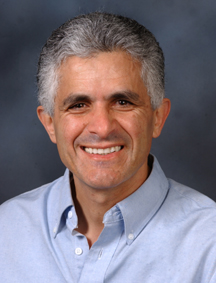Dr. Menachem Elimelech
The NewScientist article Bug-popping nanotubes promise clean surfaces said
“Coating surfaces with carbon nanotubes could keep them microbe-free, according to a study that shows how they pop and kill bacteria upon contact.Several previous studies have shown that carbon nanotubes can be toxic to human cells in the lab, and to some animals, although results have sometimes conflicted and often been controversial.
However, until now no one had checked to see if carbon nanotubes could kill microbes. ‘We thought, why not see if we can use this toxic effect in a beneficial way,’ says Menachem Elimelech of Yale University, who led the new study.
Elimelech and colleagues tested single-walled carbon nanotubes, the simplest kind of nanoscopic roll-up carbon. The nanotubes were each about 1 nanometer across — a small fraction of the size of a bacterial cell.”
Menachem Elimelech, Ph.D. is founder and director of Yale’s Environmental Engineering Program. He is also Chair, Department of Chemical Engineering, Director, Environmental Engineering Program, and Roberto Goizueta Professor of Environmental and Chemical Engineering, all at Yale University.
His research focuses on problems involving physicochemical and biophysical processes in engineered and natural environmental systems, including: (i) membrane separations for desalination and water quality control, (ii) transport and adhesion of microbial pathogens, (iii) processes involving nanoparticles and biomacromolecules, and (iv) water, sanitation, and public health in developing countries.
Menachem authored more than 140 refereed journal publications and is a coauthor of the book Particle Deposition and Aggregation. He currently serves on the Editorial Advisory Boards of Colloids and Surfaces A, Desalination, Environmental Science & Technology, Environmental Engineering Science, and Separation Science and Technology.
Menachem earned a B.S. in Soil and Water Sciences in 1983 from the Hebrew University in Jerusalem and a M.S. in Environmental Science and Technology in 1985 from the Hebrew University in Jerusalem. He earned his Ph.D. in Environmental Engineering from Johns Hopkins University in 1989. He was elected to the National Academy of Engineering in 2006 “for contributions to the theory and practice of advanced filtration technologies for the treatment and reuse of potable water” and was awarded the Athalie Richardson Irvine Clarke Prize in 2005 and the AEESP Frontier Award in Research in 2006.
